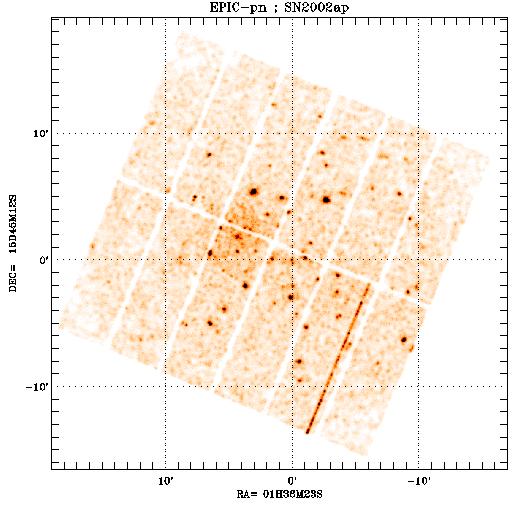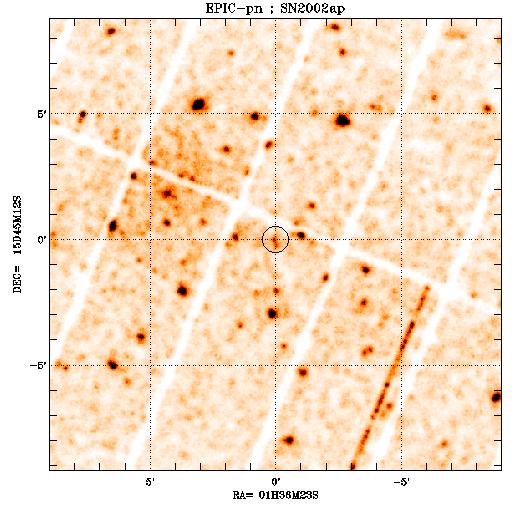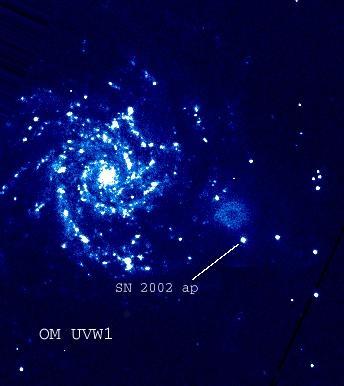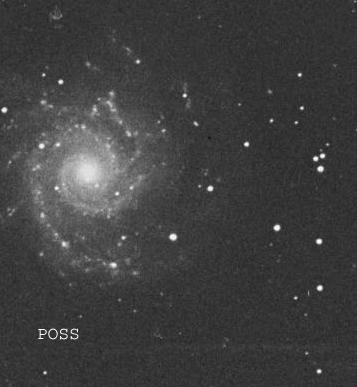| |
XMM-Newton Science Operations Center |
|---|
The Observation Data File (ODF) is available here as 0154350101.tar.gz.
1-Mar-2002: New version of the ODF available;
The former version of the ODF had a small time discrepancy between the Perth and Santiago groundstations which prevented the analysis of the data with SAS version 5.2. The next public release of the SAS will be able to cope with this.
The fixed time correlation data file 0394_0154350101_SCX00000TCS.FIT.gz has been included in the new tar file (link above). Users already working with the former ODF version should replace their time correlation file with this updated version.
Shown below is the EPIC PN image of the field centered on the SN coordinates (1h 36m 23s.85, +15o 45' 13".2, IAU Circular 7810).
Preliminary analysis of this image shows a 3.5 sigma excess of photons at a distance of 4" with respect to the expected position, which corresponds to a countrate of 9.0x10-4± 2.5x10-4 cps. At this stage of data reduction the position error is expected to be less than 10".
This countrate implies an absorbed flux of 1.9x10-15 erg cm-2 s-1 in the range 0.1-10 keV, assuming a power law with a photon index of 2 and a Milky Way absorption in the direction of M74 equivalent to an Hydrogen column of 5x1020 cm-2.
 |
 |
| PN full image | Closeup. Shown is a circle of 30 arcsec radius around the coordinates of the SN |
Images taken in the near UV with the Optical Monitor (OM) on board XMM (UVW1 filter: 2450-3200 Å) clearly show the presence of the supernova, at a level of 7x10-15 erg cm-2 s-1 Å-1.
 |
 |
| Comparison of UV and optical (Palomar Sky Survey) images of SN 2002 ap and its host galaxy M74. North is up and East is left. The images are 10x10 arcmin. (The blueish ring-like structure in the UV image north of the SN is an instrumental artefact) | |